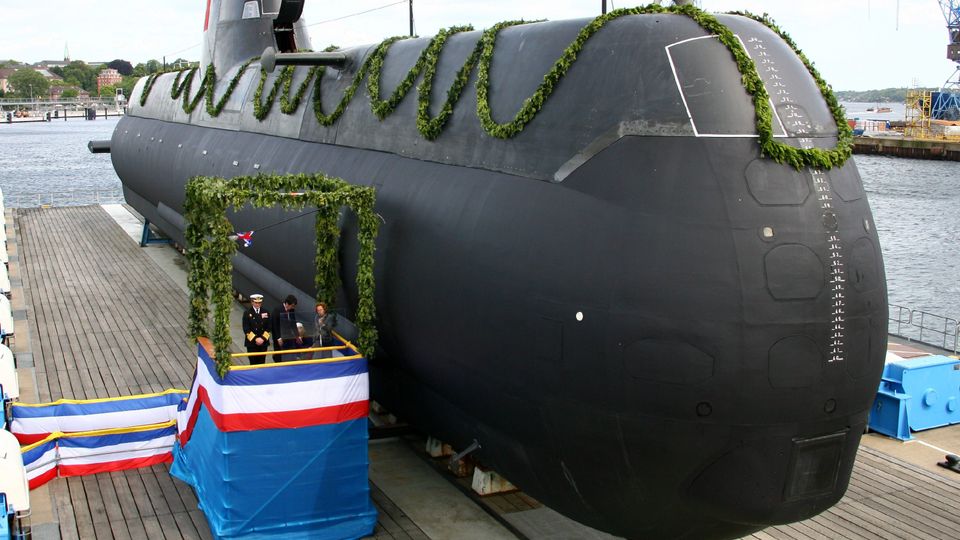2002 Submarine Bribery Case: French Prosecutors Accuse Malaysia's Former PM Najib

Table of Contents
The Scorpène Submarine Deal: A Controversial Transaction
In 2002, Malaysia signed a deal with DCNS (now Naval Group), a French defense contractor, for the purchase of two Scorpène-class submarines. This significant acquisition aimed to bolster Malaysia's naval capabilities, but the deal was shrouded in controversy from the outset. The total cost remains a point of contention, with allegations of significant cost overruns and a lack of transparency throughout the procurement process. Suspicions of inflated prices and hidden commissions fueled further scrutiny.
- Original contract value: While the initial contract value is a matter of ongoing debate, reports suggest a figure significantly lower than the final cost.
- Lack of transparency: The procurement process lacked the transparency expected of such a large, public expenditure, raising concerns about potential irregularities.
- Allegations of inflated prices and hidden commissions: Numerous reports and investigations suggest that the final cost was artificially inflated to facilitate the payment of bribes and kickbacks.
French Prosecutors' Accusations Against Najib Razak
French prosecutors have directly implicated Najib Razak in the 2002 submarine bribery case, alleging that he received substantial bribes in connection with the deal. The accusations detail a complex network of alleged intermediaries who facilitated the flow of illicit funds. The evidence presented by French authorities includes financial records and witness testimonies that allegedly link Najib Razak to the bribery scheme.
- Specific charges: The charges against Najib Razak include bribery, money laundering, and abuse of power related to the Scorpène submarine procurement.
- Alleged intermediaries: Several individuals are named as alleged intermediaries, accused of funneling bribe money to Najib Razak and other officials.
- Amounts of money: The amounts allegedly involved are substantial, potentially reaching hundreds of millions of dollars.
- Status of the investigation: The French investigation is ongoing, with international cooperation crucial to its success.
The Malaysian Perspective and Najib Razak's Response
Najib Razak has consistently denied the accusations leveled against him by French prosecutors. The Malaysian government's stance on the ongoing investigation has been complex, with varying degrees of cooperation with French authorities. Domestic legal proceedings and investigations within Malaysia have also been initiated, further complicating the situation.
- Najib Razak's response: Najib Razak maintains his innocence and has criticized the French investigation.
- Malaysian government's cooperation: The level of cooperation between the Malaysian and French governments has fluctuated, impacting the progress of the investigation.
- Domestic legal actions: Separate legal actions and investigations are underway within Malaysia, focusing on various aspects of the submarine deal.
International Implications and Anti-Corruption Efforts
The 2002 submarine bribery case highlights the challenges of prosecuting international corruption. The case underscores the need for stronger international legal frameworks and enhanced cross-border cooperation to effectively combat high-level corruption. The outcome will significantly impact investor confidence and international relations.
- Role of international legal frameworks: The case illustrates both the strengths and weaknesses of existing international legal mechanisms designed to combat bribery and corruption.
- Challenges in gathering evidence: Gathering evidence and prosecuting individuals across multiple jurisdictions presents significant logistical and legal challenges.
- Impact on investor confidence: The scandal has damaged Malaysia's international reputation and may negatively affect foreign investment.
Conclusion
The 2002 submarine bribery case involving Najib Razak exemplifies the intricate web of international corruption and the necessity for enhanced global collaboration to address these issues. The French prosecutors' accusations represent a significant development in a long-running investigation, with far-reaching consequences for Malaysia and its international standing. The ongoing legal proceedings will undoubtedly shed more light on this complex case, impacting not only Najib Razak but also the broader global fight against corruption.
Call to Action: Stay informed about the latest developments in the 2002 submarine bribery case and its ongoing investigations. Follow reputable news sources for updates and analyses of this complex and evolving situation. Understanding the intricacies of this submarine bribery case is essential for fostering increased transparency and accountability in government dealings worldwide. Advocate for stronger international cooperation to combat corruption effectively.

Featured Posts
-
 Impact Of Trumps Tariffs Amsterdam Stock Exchange Down 2
May 25, 2025
Impact Of Trumps Tariffs Amsterdam Stock Exchange Down 2
May 25, 2025 -
 17 Celebrities Whose Reputations Imploded
May 25, 2025
17 Celebrities Whose Reputations Imploded
May 25, 2025 -
 Reliving The Glory Jenson Button And His 2009 Brawn Gp Car
May 25, 2025
Reliving The Glory Jenson Button And His 2009 Brawn Gp Car
May 25, 2025 -
 Traffic Update M62 Westbound Closure For Resurfacing Manchester To Warrington
May 25, 2025
Traffic Update M62 Westbound Closure For Resurfacing Manchester To Warrington
May 25, 2025 -
 Memorial Day Poster Contest Celebrating Hawaiian Keiki Artistic Talent Through Lei Making
May 25, 2025
Memorial Day Poster Contest Celebrating Hawaiian Keiki Artistic Talent Through Lei Making
May 25, 2025
